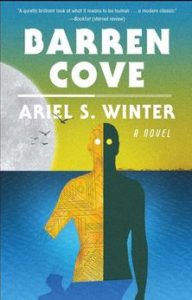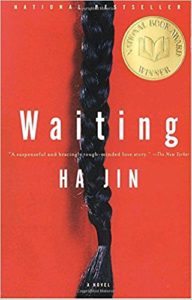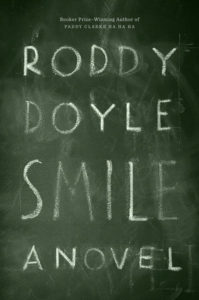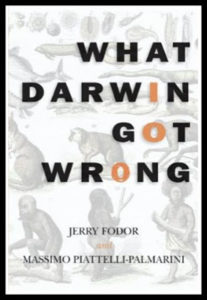 The title refers to Matthew-13 of the Christian Bible, a parable in which a sower scatters seeds indiscriminately. Some grow, some don’t, depending on where they fall. A preacher (e.g., Jesus) is analogous to the sower; sometimes his words fall on receptive ears, sometimes not.
The title refers to Matthew-13 of the Christian Bible, a parable in which a sower scatters seeds indiscriminately. Some grow, some don’t, depending on where they fall. A preacher (e.g., Jesus) is analogous to the sower; sometimes his words fall on receptive ears, sometimes not.
Butler’s novel is about a young girl, twelve to eighteen in the course of the novel, who creates her own religion and strives to form a congregation who will listen to her. The religion is a fuzzy neo-Buddhism that worships impermanence, and whose main goal is to gather people into communities where they won’t hurt each other, and, oh, yes, eventually travel to Mars.
The religion is silly and its “texts”, which she writes, and which are tediously presented throughout, are ponderous-sounding, but overly simplistic. What makes this coming of age story interesting is not the religious aspect but the context in which it occurs. We’re in a post-apocalyptic California in the 2020’s, where climate change has dried up all the water and a fascist president (motto: “Make American Great Again”) has divided the country by rich and poor, and by black and white, and where plutocrats run the economy and the state for their personal benefit. This was written in 1993 and is eerily prescient.
In the future world (only two years from now!) public services have disappeared for all but the rich, so anarchy rules, with thieves, cannibals, and arsonists everywhere. You need a gun to stay alive. Food is scarce, water costs more than gasoline, and people walk on the freeways because there are so few cars. Education is only a memory, disease is untreated and rampant, packs of feral dogs are a constant hazard, and drug-crazed zombie-like killers are behind every bush. Butler’s depiction of the future dystopia is way over the top, but on the other hand, in some chilling way, is entirely believable, and that’s the best part of the book.
The structure of the novel is the road trip. After her family and town are wiped out by thieves and drug-zombies, the heroine walks from Simi Valley to Sacramento, picking up friends and allies along the way (“converts” to her ersatz religion), shooting and stabbing bad guys as necessary. Again, it’s way too much and that excess left an opening for Cormac McCarthy, who did virtually the same story, copying many of the same scenes, in “The Road,” a 2007 novel of half as many pages and using much more restraint. That novel achieved great acclaim, without much acknowledgement of Butler’s precedent. I won’t speculate on why that might have been.
Butler’s book braids several thematic elements. The main one is the so-called religion, which is a real thump-over-the-head preachiness that put me off, but it’s supposed to represent the avenue of hope. The girl preaches that even though life is terrible and seemingly unchangeable, all things must pass, so there is always hope. Therefore, the religious theme is not gratuitous, but a necessary counterpoint to the dystopia.
The second main element is the political and social breakdown that occurs after the plutocrats privatize the government, destroying social institutions, leaving the masses of ordinary people to fend for themselves. Butler’s message here is Freudian: without the structures of civilized society, the superego collapses and the id comes out and we all become drug-crazed, baby-eating zombies – all but a few “special” people, of which the heroine is one. How special is she? She is super-ultra empathic, to the point of displaying stigmata (though she can slit a man’s throat efficiently). But she doesn’t die and she is not a redemptive figure, so all that Christ-like symbolism is wasted.
The racial theme is soft-pedaled. We learn that the heroine and most of her congregation are black, but we only learn that incidentally. It does not loom large in the story, and I wouldn’t say it is a major theme. Likewise, there is a feminist theme, played lightly. The hero is a girl, and she dresses as a boy to get along better in her awful world, but she does not put forth a lot of particularly feminist ideas. Her main ideas are to believe in hope and change, and a utopian “go back to the farm” vision with happy, communal subsistence living.
I found the pace very slow, despite the author’s repeated attempt to inject dramatic interest by having an attack of bad guys every two chapters. That becomes repetitive and uninteresting very quickly. The same was true in McCarthy’s book, I thought, and it’s interesting that both stories involved a road trip to nowhere for no compelling reason. Unlike Dorothy on the Yellow Brick Road, there was no “mission.”
I think The Parable of the Sower would be a good book for teenagers struggling with values, religion, politics, and identity. There’s a lot there to think about and the “scary” scenes might work better for that age group. And it’s worth reading for its historical context – Butler was one of the first, or maybe the first, black woman to achieve mainstream success in speculative fiction.
Butler, Octavia (1993). Parable of the Sower. New York: Grand Central Publishing, 329 pp.

 I just posted a new review, of a book called “Barren Cove,” about a family of robots virtually indistinguishable from a family of humans. (www.psi-fi.net/when-is-a-robot-not-a-robot/ ) Was it psi-fi? Not much can be learned from robots if they act just like humans, so the book is an interesting limiting case of the psi-fi genre.
I just posted a new review, of a book called “Barren Cove,” about a family of robots virtually indistinguishable from a family of humans. (www.psi-fi.net/when-is-a-robot-not-a-robot/ ) Was it psi-fi? Not much can be learned from robots if they act just like humans, so the book is an interesting limiting case of the psi-fi genre.




 If you appreciate Chinese culture and the wrenching changes it endured in the twentieth century, this book has more meaning and significance. At face value, the story is about a country doctor working in the army who has an arranged marriage with an unattractive, illiterate woman he doesn’t care for. Nevertheless, she bears him a daughter, cares for the child and the household and serves him without complaint for decades.
If you appreciate Chinese culture and the wrenching changes it endured in the twentieth century, this book has more meaning and significance. At face value, the story is about a country doctor working in the army who has an arranged marriage with an unattractive, illiterate woman he doesn’t care for. Nevertheless, she bears him a daughter, cares for the child and the household and serves him without complaint for decades. Like many people, I have a morbid fascination with Donald Trump and I watch his bizarre machinations like a gawker at a highway wreck. Wolff’s book promised an inside scoop and was widely reviewed in the media so I gave it a read. My conclusion: “Meh.”
Like many people, I have a morbid fascination with Donald Trump and I watch his bizarre machinations like a gawker at a highway wreck. Wolff’s book promised an inside scoop and was widely reviewed in the media so I gave it a read. My conclusion: “Meh.” Rules of Civility is perfection in world-building, the art of constructing a believable and engrossing fictional world for the characters to inhabit. Nineteen-thirties Manhattan is long gone but Towles brings it back to glittering life and that is the main enjoyment of the novel.
Rules of Civility is perfection in world-building, the art of constructing a believable and engrossing fictional world for the characters to inhabit. Nineteen-thirties Manhattan is long gone but Towles brings it back to glittering life and that is the main enjoyment of the novel. You must be a fan of fine writing to persevere with Smile, Roddy Doyle’s latest, because no genuine drama is apparent, except for the closing scene, which is deus ex machina hogwash. Actually, not even that. At least that classic ending had cultural context, God dips his finger into human affairs and resolves all story problems.
You must be a fan of fine writing to persevere with Smile, Roddy Doyle’s latest, because no genuine drama is apparent, except for the closing scene, which is deus ex machina hogwash. Actually, not even that. At least that classic ending had cultural context, God dips his finger into human affairs and resolves all story problems. I never paid too much attention to the details of Darwinian theory before I read this book. I assumed, as many do, that the basic ideas are sound. The offspring of any animal vary in traits (blue vs brown eyes, large vs small wings, high vs low intelligence, etc.). Some of those offspring live to reproduce, some don’t.
I never paid too much attention to the details of Darwinian theory before I read this book. I assumed, as many do, that the basic ideas are sound. The offspring of any animal vary in traits (blue vs brown eyes, large vs small wings, high vs low intelligence, etc.). Some of those offspring live to reproduce, some don’t. From what I understand of French philosopher Gilles Deleuze, this book about his work, The Clamor of Being, is not helpful. It seems to deliberately obfuscate rather than clarify Deleuze’s thinking, though that could just be the au courant style of French philosophy. I managed to wrest some useful ideas out of this short essay, but I can’t recommend it as an exegesis.
From what I understand of French philosopher Gilles Deleuze, this book about his work, The Clamor of Being, is not helpful. It seems to deliberately obfuscate rather than clarify Deleuze’s thinking, though that could just be the au courant style of French philosophy. I managed to wrest some useful ideas out of this short essay, but I can’t recommend it as an exegesis. I bought a “Google Home” voice-activated speaker (VAS) that uses Google Assistant, a synthetic voice that answers questions. Google Assistant is comparable to Siri, Cortana, and especially Alexa, the persona on Amazon’s “Echo” line of voice-activated speakers. For all of them, you bark out your command and get answers and actions.
I bought a “Google Home” voice-activated speaker (VAS) that uses Google Assistant, a synthetic voice that answers questions. Google Assistant is comparable to Siri, Cortana, and especially Alexa, the persona on Amazon’s “Echo” line of voice-activated speakers. For all of them, you bark out your command and get answers and actions.